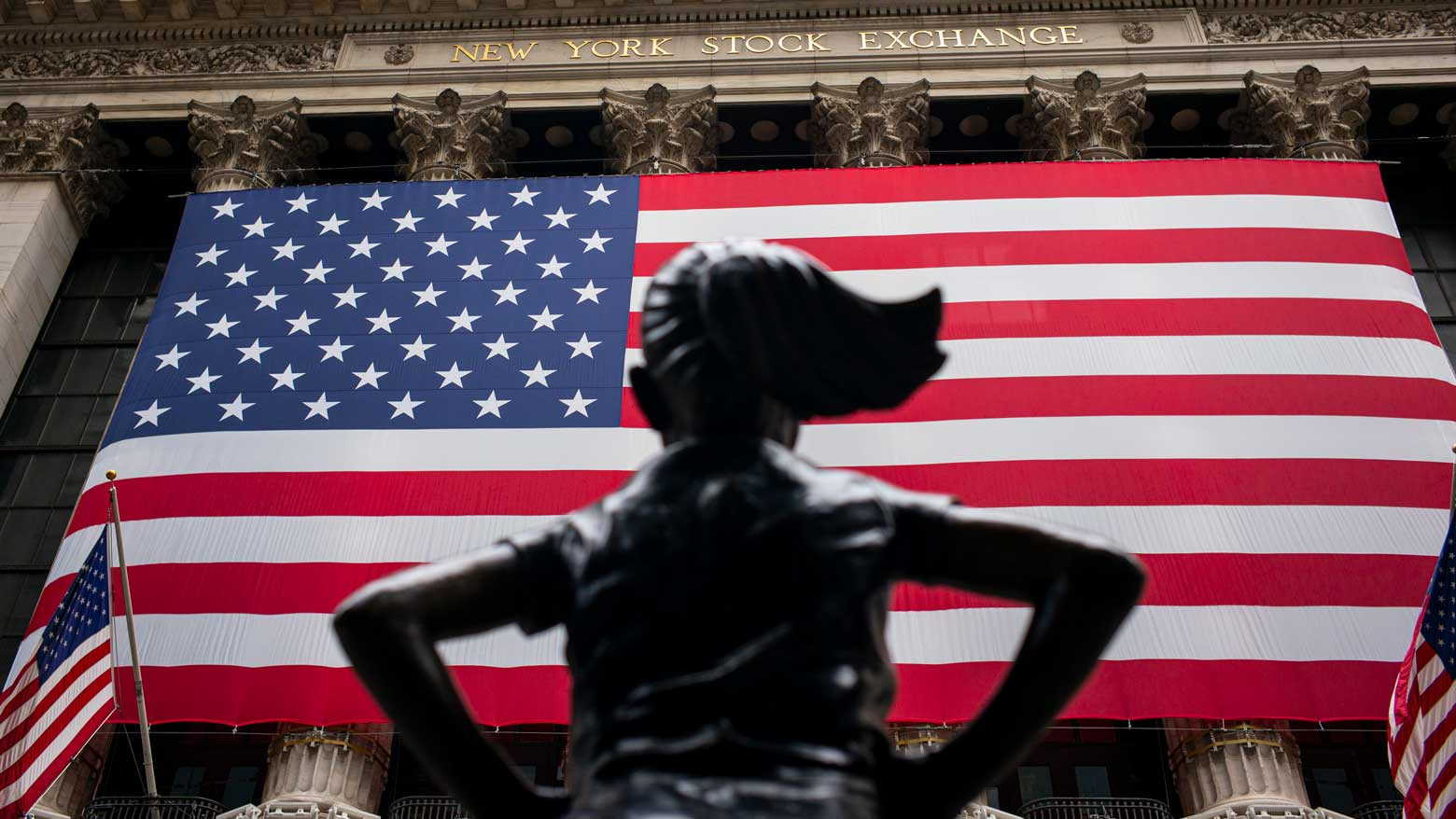Central banks around the world are taking monetary easing measures to cope with the COVID-19 pandemic, allowing huge capital flow into the markets. It's a volatile time.
Market players are interested in the presidential and Congressional elections. They are considering a scenario referred to as "Triple Blue", with Democrats winning the presidential vote, as well as a majority in both the House of Representatives and the Senate.
Mark Zandi, Chief Economist of Moody's Analytics in New York, says the probability of Democrat Joe Biden winning the election has increased to two-thirds in recent weeks. He also lays the odds of a Triple Blue outcome at around one-third.
The Democratic Party is planning to raise taxes on large companies and wealthy individuals, but Zandi stresses that Biden is also proposing substantial fiscal spending. "The most favorable impact on the economy is if there's a Triple Blue wave," says Zandi. "Some tax increases, but larger deficits, and then the net of all that would be a much stronger economy."
Meanwhile, Fujito Norihito, Tokyo-based Chief Investment Strategist at Mitsubishi UFJ Morgan Stanley, thinks the markets have already taken Triple Blue into account. He points to surging stock prices for companies involved in electric vehicles or renewable energies. Biden's economic plan includes a two-trillion-dollar investment in the environmental sector over four years.
President Trump seems to be picking up support in some swing states during the final stretch of the campaign. Fujito says the market regards Trump as a favorable factor. In addition, the US needs another round of government stimulus to weather the pandemic.
"Regardless of who wins, there is bound to be a stimulus package. And the stock market is likely to react positively," notes Fujito.
Fujito says the election result could also benefit stock prices in other countries – Japan included. "Japan's stocks have remained resilient. If the US stock market reacts positively, there's a high probability that Japan's stock market will get a boost from that stateside momentum."
It's not just the outcome that people are watching closely. Many investors are worried about how long it might take for a result to be confirmed, with mail-in voting proving popular among people worried about the coronavirus.
One measure of investor fear, known as the VIX, has spiked and remains high. Markets dislike uncertainty and confusion, both of which are likely if the results are delayed.
Zandi warns vote counting might take days: "Under some dark scenarios, it could take longer than that. That's not good for anybody, the US economy, the global economy and financial markets."
Fujito says the market can wait "a week at most". Any longer, and he sees confusion having a negative effect on investors, consumers and business leaders. "In that case, the Federal Reserve would take measures to support the economy. But there still would be a slow but steady downward trend," he notes.
A quick and decisive victory could set markets on a more certain course. But the possibility of a close result that drags out the vote count has investors bracing for a rough ride.


